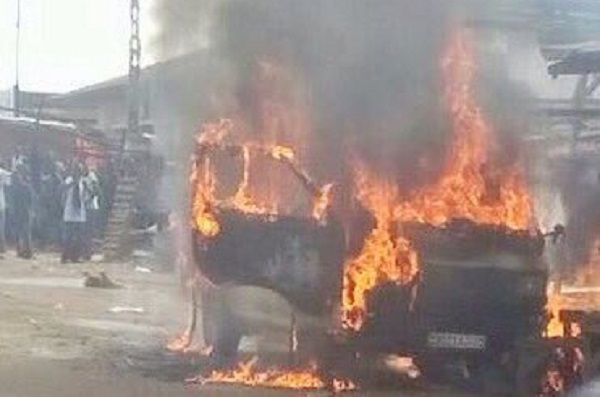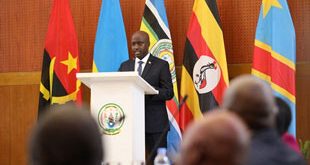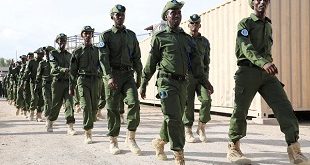
Kinshasa, DR Congo | AFP | Dozens of people were arrested in the Democratic Republic of Congo on Wednesday, following warnings from authorities that they would break up planned protests against the extended rule of President Joseph Kabila.
The Lucha citizen movement said at least 27 were detained by police in North Kivu province in the country’s east, including 15 in the provincial capital Goma.
The authorities confirmed 16 arrests in North Kivu and eight in Goma. “The situation is calm in Goma. We have taken in eight people who wanted to barricade the road,” said local police chief Placide Nyembo.
In the neighbouring province of South Kivu, Lucha said it lamented “the arrest of 13 activists” who were detained while a political statement was being read out.
The government denounced Tuesday what it said was “a fringe of the opposition that indulges in acts of incitement”, naming Kinshasa, Lubumbashi and Goma as cities earmarked for demonstrations, following a meeting of ministers.
“The governor has given us the order to disperse any protests. Any gathering of more than five people will be dispersed,” Kinshasa police chief Sylvano Kasongo said.
Official moves to dissuade protests followed a statement from the UN peacekeeping mission MONUSCO urging authorities “to respect the fundamental freedoms enshrined in the Congolese constitution, including freedom of assembly and of demonstration.”
The Lucha movement said the statement from Tuesday’s government meeting amounted to “a programme of repression”.
Mineral-rich but chronically poor, politically unstable and saddled with a reputation for entrenched corruption, the DRC faces a feared flare-up of violence over Kabila’s decision to stay in office.
He was scheduled to have stepped down in December 2016 after a constitutional maximum of two terms in office.
But as protests and a bloody crackdown swelled, a deal was brokered by the Catholic church enabling him to stay in office pending elections which have been repeatedly delayed.
Pressured by the international community, the ballot is now scheduled for December 23, 2018, electoral officials announced earlier this month.
But the opposition immediately rejected that timetable and said Kabila must stand down.
 The Independent Uganda: You get the Truth we Pay the Price
The Independent Uganda: You get the Truth we Pay the Price



